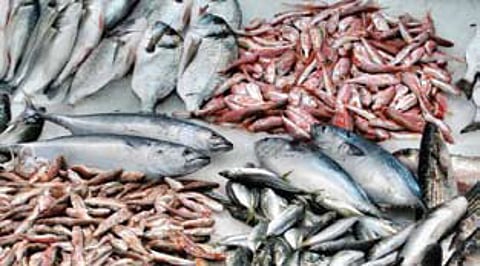

KOCHI: Stung by the growing incidence of fish adulteration, Kochi-headquartered Central Institute of Fisheries Technology (CIFT) is developing a cost-effective and user-friendly test kit to check the quality of fish sold in the market. Once the kit is developed and launched, consumers will be able to test the level of toxic chemicals like ammonia and formalin in fish procured from the market and local vendors.
The CIFT, the only technology institute in the country in the fisheries sector, caters to a broad spectrum of activities including harvest and post-harvest operations. Speaking to Express, CIFT-Kochi principal scientist Satyen Kumar Panda said development of the test kit was progressing at the CIFT lab. The user-friendly kit could be used at home to detect presence of hazardous chemicals in fish. Recently, a consignment of red snappers transported to Mangaluru from a Kochi-based marine products export firm had caused food poisoning among 150 persons who consumed it. “The initial investigation showed that the fish was part of a consignment brought to Kochi from South Africa by sea. According to CIFT scientists, the poisoning was caused by harmful algal blooms (HAB). It is suspected that local fishermen caught the fish from the Diego Garcia area where the fish feed on the toxic bloom,” said CIFT Biochemistry Lab HoD and principal scientist Susheela Mathew.
Meanwhile, the government’s decision to give the right to test the quality of fish imported from foreign countries to NABL-accredited laboratories, mostly in the private sector, has raised many eyebrows.
“The decision is astonishing, following which Customs authorities have stopped sending samples of imported fish to the CIFT. Entrusting private laboratories with the task of conducting chemical and micro-biological tests would worsen the situation,” said CIFT officials.
The situation is very jittery in the domestic market also, where adulteration is much higher. “Adulteration has been taking place across the retail chain, done with the aim of increasing the shelf-life of fish to the maximum,said Fisheries Department joint director Ashraf.